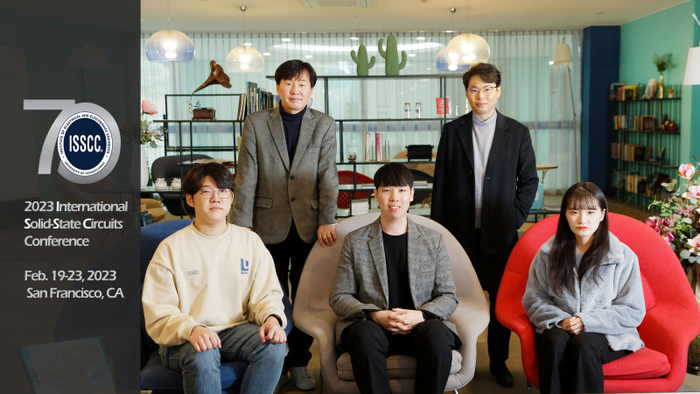Three research papers by UNIST researchers have been accepted for presentation at the 2023 IEEE International Solid-State Circuits Conference (ISSCC), known as the ‘Semiconductor Design Olympics‘.
Started in 1954, ISSCC is the foremost global forum for presentation of advances in solid-state circuits and systems-on-a-chip. Marking its 70th anniversary this year, ISSCC 2023 is set to take place February 19-23, next year.
More than 3,000 academic scientists, researchers, and professionals around the globe will gather to exchange and share their research findings, as well as to discuss the future of semiconductor industry and design. This year, a total of 198 papers were selected for presentation at the 2023 ISSCC, including 32 papers from Korea. Among those, three research papers from UNIST (2 from Professor Se-Un Shin and 1 from Professor Jae Joon Kim) were also included. This is the second-largest number among Korean universities.
In particular, Professor Se-Un Shin’s research team has drawn attention particular for having two of its eight research papers in the field of power management integrated circuit (PMIC) accepted for presentation at the 2023 ISSCC. This is because he is the only researcher from Korea whose paper has been selected for presentation in this field.
Professor Shin’s research team will be presenting two semiconductor circuit designs, one that is capable of improving power management in mobile devices, and another used for piezoelectric generators.
The second paper introduced a semiconductor circuit design that regularly equalizes the process of transmitting an AC current obtained through pressure to reduce energy loss. Thanks to this, it was possible to increase the amount of energy extraction even when small devices with low performance were used.
Professor Kim’s team proposed semiconductor circuit and system design technology that can be used in the smart healthcare field, in collaboration with Professor Dong Pyo Jang from Hanyang University and SOSO H&C. The system proposed by the researchers can monitor brain waves, stress, blood pressure, and heart rate just by wearing it behind the ears, and at the same time, it also supports electrical stimulation. It detects various bio-signals with one chip and device.
Meanwhile, the 2023 ISSCC will be held in San Francisco from February 19 to 23, 2023. At the conference, 198 papers in a total of 12 fields, including analog, data converter, digital architecture and system, digital circuit, IMMD, RF (Radio Frequency), wireless, wired, and memory, will be introduced. More than half of the participants are from leading semiconductor companies such as Samsung Electronics, Intel, and TSMC, and they will gather to focus on practical research.

















